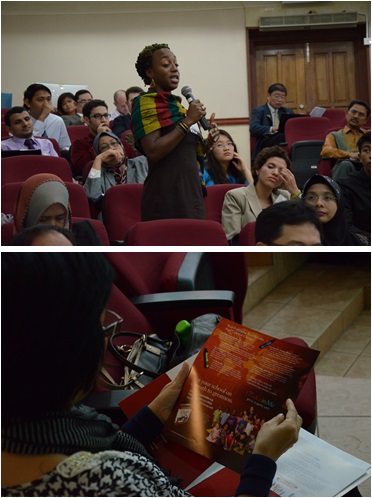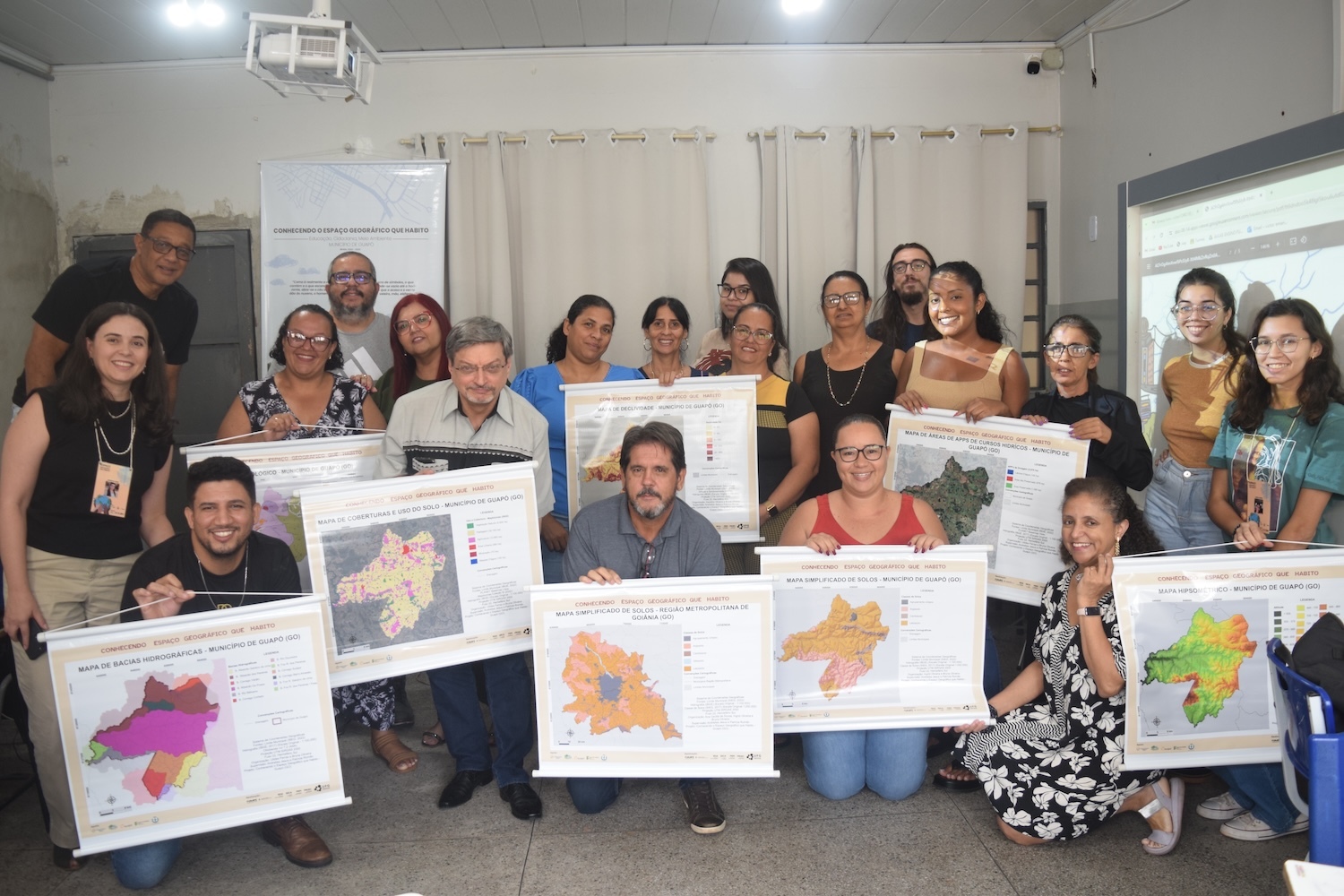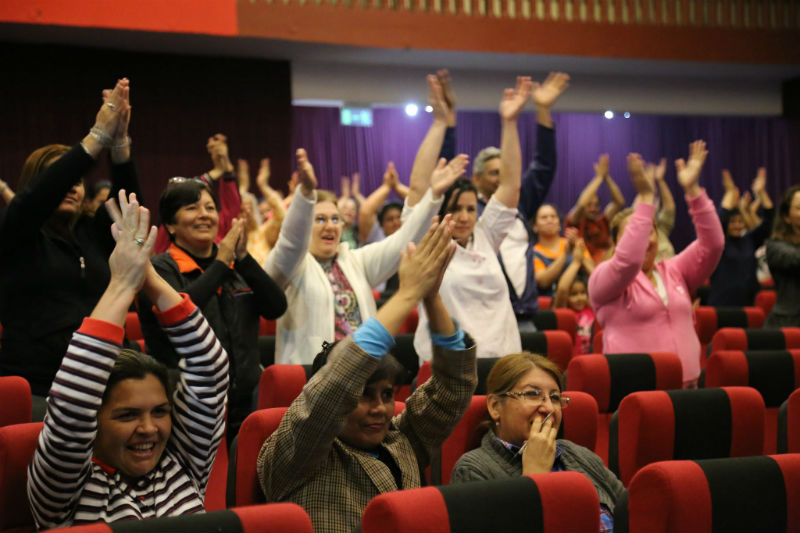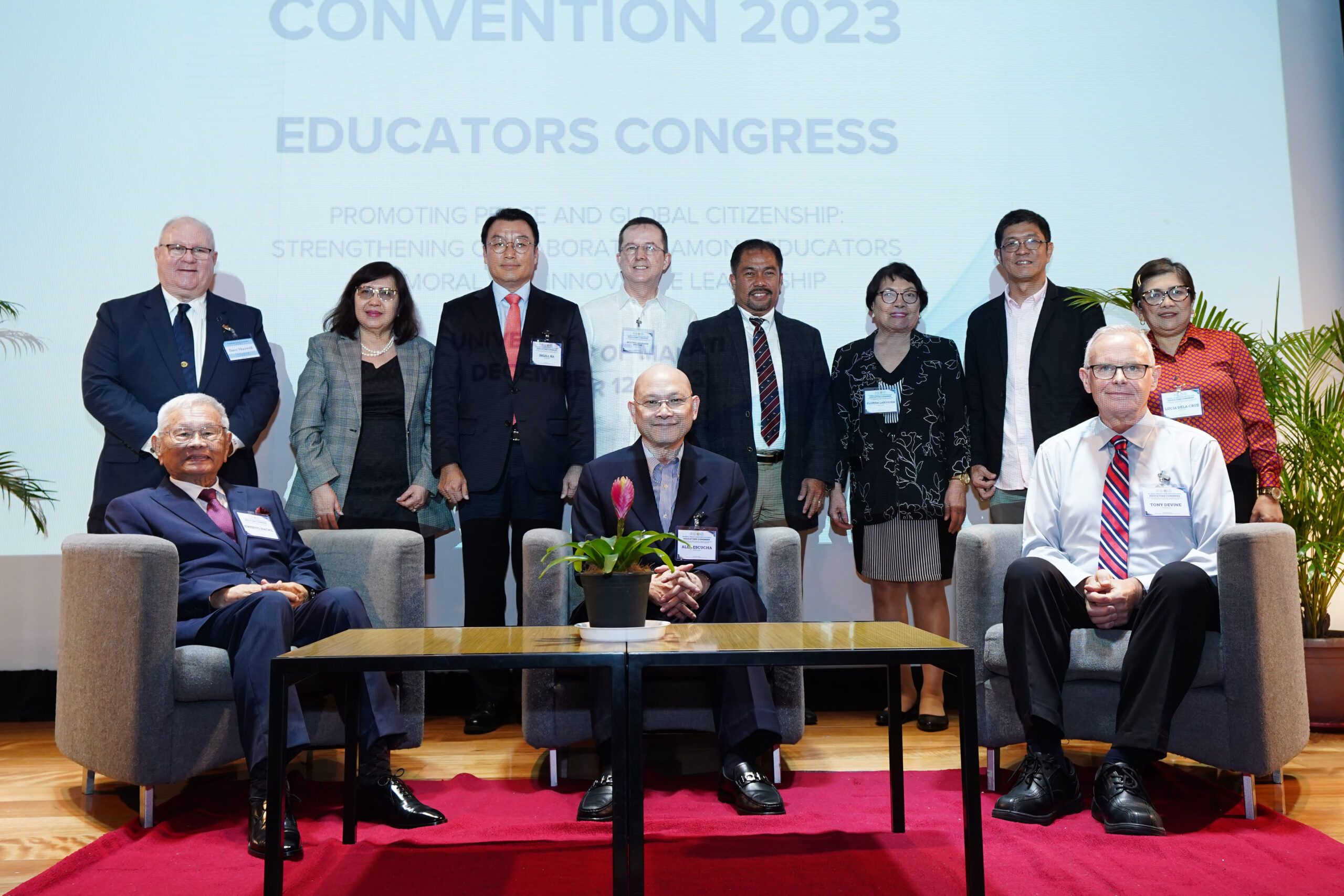Preconvention Summit Announces Expansion of GPF Initiative into Malaysia and Indonesia Schools

GPF Vice President and Executive Director of Leadin Dr. Tony Devine introduces GPF’s Character and Creativity Initiative at the Global Summit on Character and Creativity in Kuala Lumpur, Malaysia.
In preparing for the larger transformation and integration of Malaysia into the ASEAN [Association of Southeast Asian Nations] community, schools and educators must prepare for a profound change in education methodology, said panelists at a major convening of educators in Kuala Lumpur, Malaysia on December 5, 2013. In particular, educators must model integrity, creativity and character, provide more student-centric learning, and be fully trained and engaged in the classroom.
These were among the findings presented by Malaysian and international educators at the Global Summit for Character and Creativity held in University of Malaya, in Kuala Lumpur, Malaysia on December 5. The Summit, “Preparing Youth for Success in Life, Work and Community,” seeks to provide a platform to share educational best practices from various parts of the world and drew more than 150 participants, including teachers, students, administrators and other key stakeholders in the education sector.
The Summit is one of the three pre-conference events hosted as part of the 2013 Global Peace Convention, “Unity in Diversity: Building Social Cohesion for Sustainable Peace through Universal Aspirations, Principles and Values,” convening from December 5-8, 2013 at the Shangri-La Hotel in Kuala Lumpur. The convention is hosted by the Global Peace Foundation in partnership with Malaysia’s Department of National Integration and Unity and the University of Malaya.
The Character and Creativity Initiative (CCI) is a project of the Global Peace Foundation which aims to provide experiential training in values and entrepreneurship for students in secondary schools. It was first initiated in Kenya in 2011 and has now been introduced in Uganda, Nigeria, Paraguay, the United States and, starting next week, Indonesia, with plans announced at the Summit to extend the initiative to Malaysian schools.
Meeting workplace challenges

Panelists discuss the importance of education in preparing youth for the twenty-first century workplace.
One of the key reasons for the adoption of CCI into the formal curricula is to address the challenges affecting the academic and economic climate in Malaysia and in much of the developing world. According to the United Nations, half of the world young people are currently outside of the formal economy, and in 2020, 450 million new jobs would have to be created in order to meet the projected needs of the global workforce.
Dr. Tony Devine, Vice-President of the Global Peace Foundation International, President of LeadIn (GPF’s Education Division) and principal author of CCI, told the Summit that “we are in a great inflection point where more and more things you learn in schools are becoming obsolete at a faster rate. The world is changing, becoming more inter-connected. We are in a cultural and economic revolution; global in scale and unpredictable in nature.”
Panelists noted that while parents were previously the primary moral educators, the exigencies of modern life have brought both parents into the workforce, leaving very little time for their children. Schools and educators now take up the slack, yet are given few tools or training to provide moral and ethical guidance for students. Character and creativity should be valued equally, if not more, than strictly intellectual competence, panelists agreed.
Mark Hyatt, President of Character Education Partnership, USA pointed out that academic development and character development are intertwined and inseparable. “It is important to keep re-engaging both and having new conversations by building on strengths and sharing best practices among educators,” he said.

Mark Hyatt, President and CEO of the Character Education Partnership.
Citing recent research, Dr. Devine said that drop-out rates around the world can be as high as 80 percent, especially in indigenous community schools. Employing teachers with high creativity and character competency can help lower drop-out rates. He said when the CCI was introduced in Kenya, the Kenya Institute of Public Policy study found that schools which implemented the CCI pedagogy had decreased drop-out rates and increased academic performance. “The economic impact of correcting and lowering the drop-out rates of students is huge and cannot be understated,” he added.
Speaking on the Malaysian context, Ms. Shahnaz Al-Sadat pointed out that “there is a need to challenge the assumption that academic achievement can directly correlate with the potential of a student. In particular, there is a need to consider other measures, such as the creativity and character of a student.” Panelists also emphasized that social aspects of education must take priority so that education can be properly aligned with the real world.
Employers’ top priority in the next ten years are no longer high-test scores, but rather creative, innovative and entrepreneurial employees,not just at the white-collar level but also the blue-collar level.
In furthering this aim, CCI can significantly improve the school culture and student outcomes, as well as provide for a long-term remedy to chronic youth unemployment in Malaysia, culminating in the development of human capital with first-class mentality. Character and creativity should be embraced by schools in Malaysia, panelists agreed, because it can help address the issue of under-productivity and unemployment among youth. At present, there is a mismatch between education and the working world, and CCI intentionally seeks to prepare the youth for the challenges and opportunities of current work environments.

Students and other education stakeholders at the Education Summit.
Panelists noted that employers’ top priority in the next ten years are no longer high-test scores, but rather creative, innovative and entrepreneurial employees,not just at the white-collar level but also the blue-collar level. It is especially important that employees are able to learn on the job, and are reliable and independent. CCI intervention directly addresses these skill sets through the improvement of teachers’ practices, such as ensuring a student-centric environment which can provide for the ability to create two-way, diverse and critical dialogues.
The toughest part of the journey for educators is to break the cycle, to hold themselves to the highest standards and provide such an inclusive environment for students. In addressing the Malaysian educators, Professor Dr. Georg Wiessala, Deputy Director of the Institute of Educational Leadership at the University of Malaya said that “achieving true transformational success requires finding a balance between national or religious culture, and human rights standards. Education must never become a vehicle for evangelization or brainwashing. Respect for unity, tolerance and open-mindedness are the best resource a teacher can have.”




